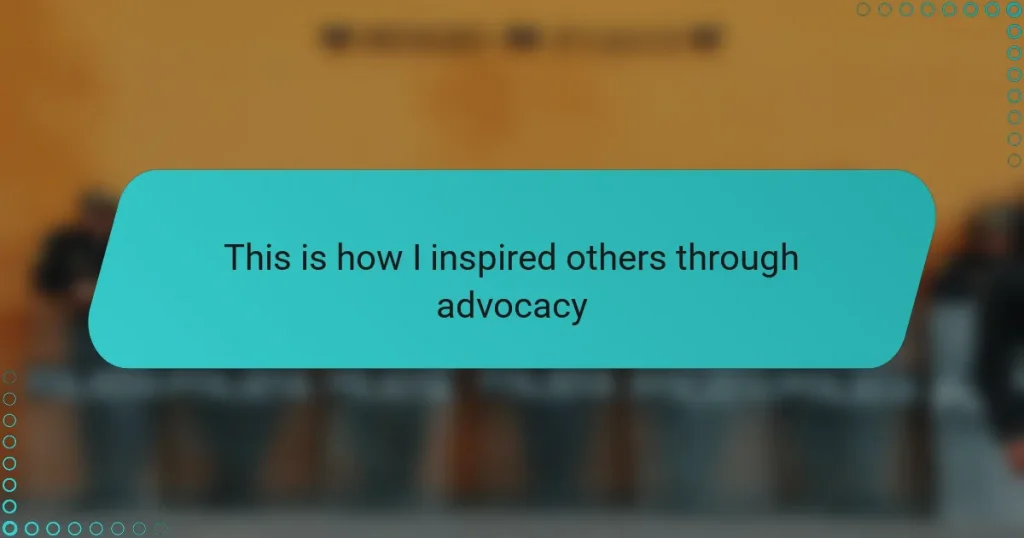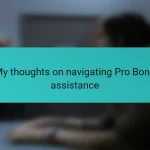Key takeaways
- Clear and precise goals in legal advocacy enhance motivation and inspire community support.
- Effective communication, active listening, and persistence are essential skills for successful advocacy.
- Building authentic connections and adapting strategies are crucial for overcoming challenges in advocacy campaigns.
- Personal storytelling and celebrating small wins help inspire others and foster empathy in advocacy efforts.
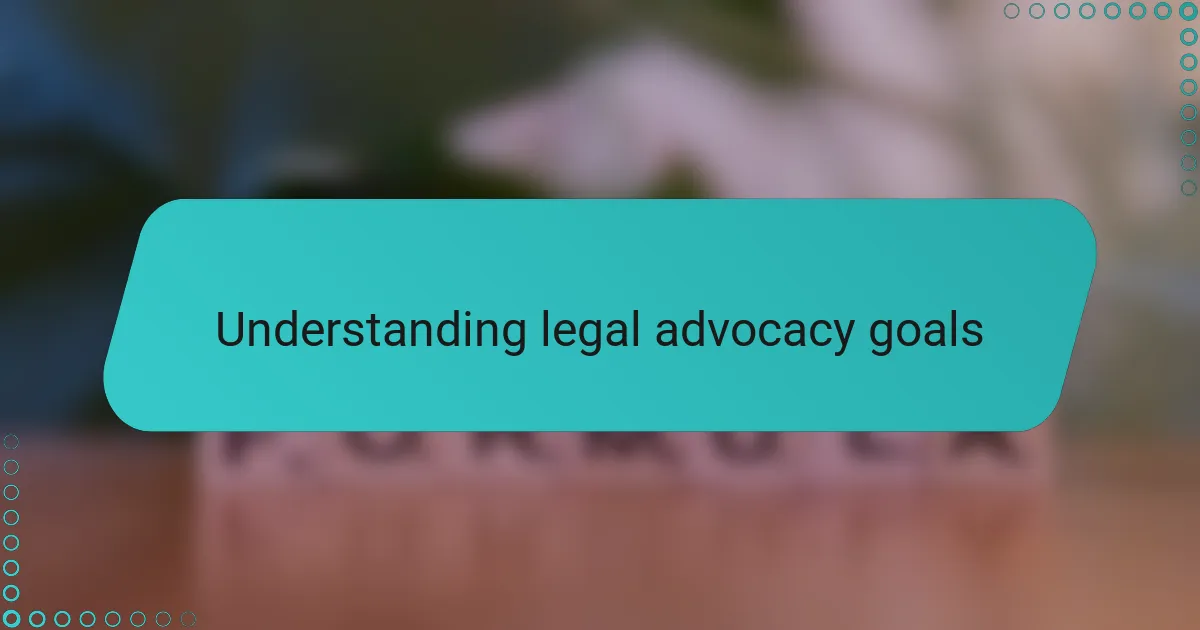
Understanding legal advocacy goals
Legal advocacy starts with a clear understanding of what you want to achieve. I’ve found that when goals are sharply defined, it’s easier to stay motivated and focused through challenging times. Have you ever noticed how unclear objectives can lead to wasted energy and frustration?
In my experience, setting precise goals also helps in rallying support because people connect more deeply with a purpose they understand. For example, when I advocated for fairer housing laws, laying out specific targets made it easier to communicate the cause and inspire action among community members.
But it’s not just about the endpoint—you have to grasp the underlying principles behind the goals. What values are you defending, and why do they matter? Reflecting on these questions gave my advocacy both heart and direction, making the work feel meaningful beyond just legal victories.
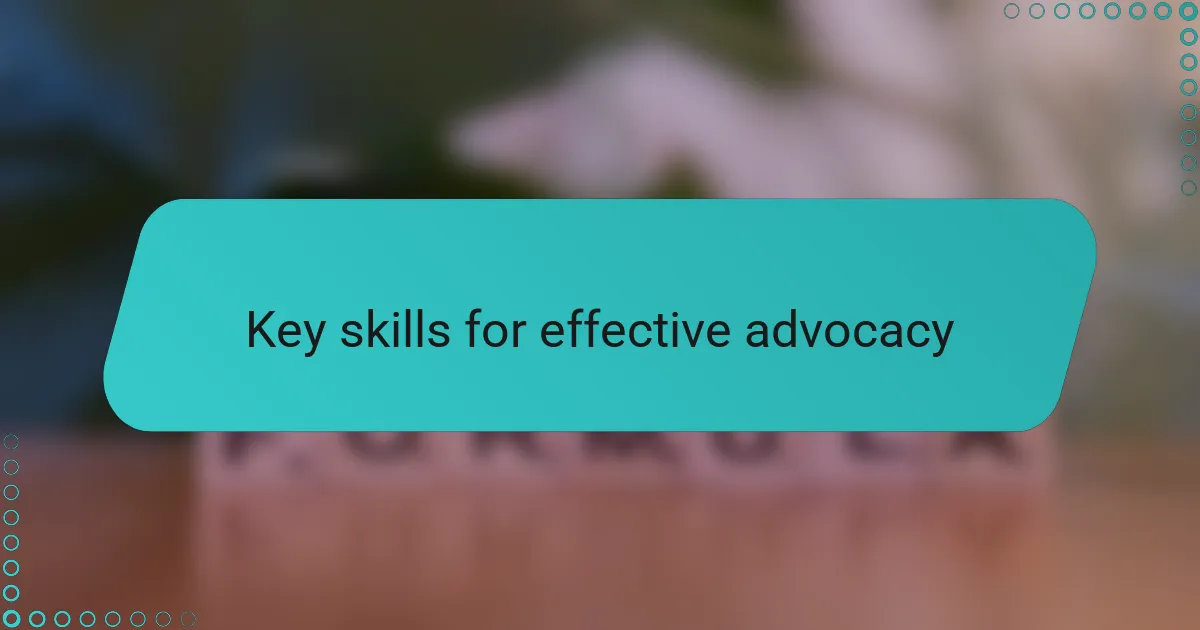
Key skills for effective advocacy
One skill I’ve come to realize is absolutely vital is effective communication. It’s not just about knowing the law but about conveying complex ideas in a way that everyone can understand. Have you ever tried explaining a legal point and seen people’s eyes glaze over? That’s when you know you need to simplify your message without losing its power.
Listening is another skill often overlooked but deeply important. When I started paying closer attention to the concerns and stories of those affected by legal issues, my advocacy became more grounded and genuine. It’s through listening that I learned what truly mattered to people, which in turn shaped stronger, more compelling arguments.
Finally, persistence stands out for me as a cornerstone of success. Legal advocacy can be a long, uphill battle filled with setbacks. I remember moments when frustration almost made me quit, but pushing through those times often led to breakthroughs. Isn’t it amazing how resilience not only sustains you but also inspires others to keep fighting alongside you?
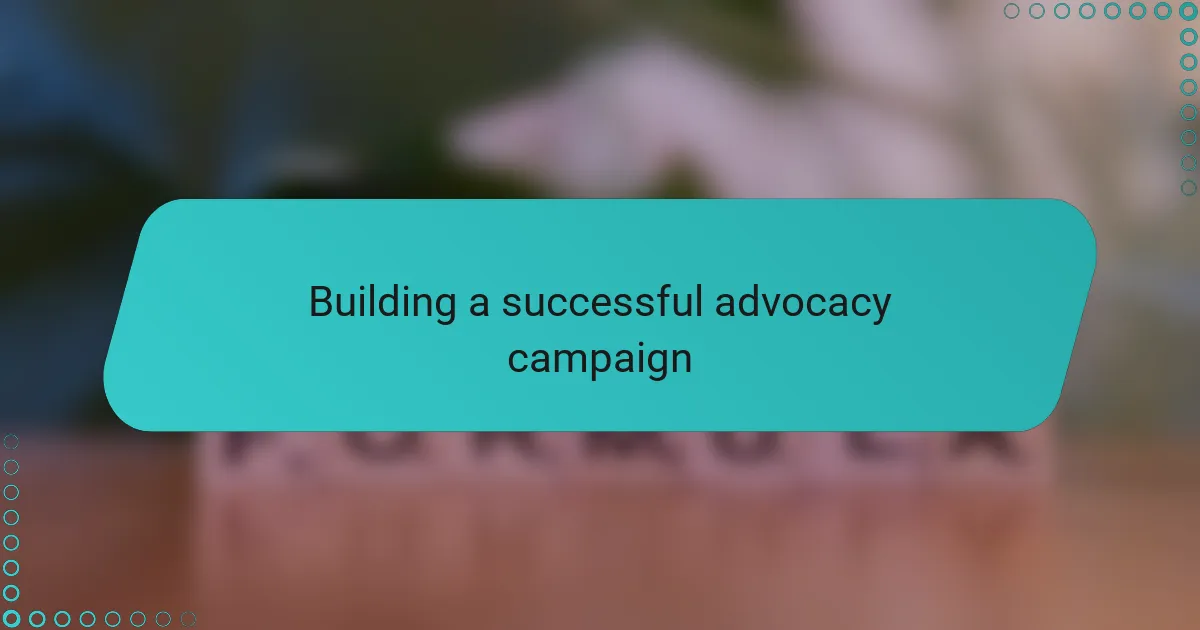
Building a successful advocacy campaign
When I first set out to build an advocacy campaign, I quickly learned that you need more than passion—you need a solid plan. I mapped out each step carefully, from identifying key stakeholders to defining clear messaging. Have you ever tried to rally support without a roadmap? It’s like shouting into the void.
Another crucial element is creating authentic connections with people who share your cause. I found that hosting small, informal gatherings allowed me to hear real stories and build trust. Those moments fueled my energy and helped transform strangers into committed allies.
Of course, flexibility made all the difference. No campaign ever goes exactly as planned, and I remember adjusting strategies multiple times when unexpected challenges arose. Do you embrace change or resist it? In advocacy, adaptability often turns obstacles into new opportunities.
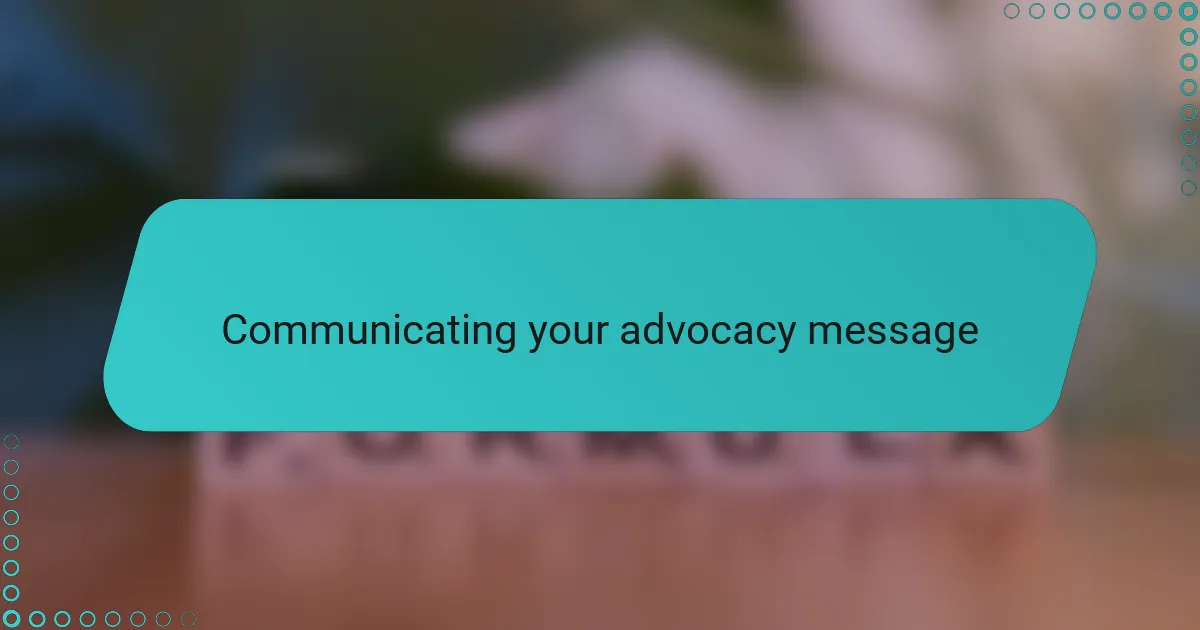
Communicating your advocacy message
Communicating your advocacy message is about clarity and connection. Early on, I struggled to make legal jargon relatable until I started telling stories that people could see themselves in. Have you ever noticed how a well-told story can break down barriers and open minds faster than facts alone?
I also learned that timing and tone matter just as much as the message itself. When I shifted from aggressive speeches to honest conversations, the response was surprisingly warmer and more supportive. It made me wonder: are we sometimes pushing people away when we really want them on our side?
Finally, the power of repetition can’t be underestimated. Reiterating key points across different platforms helped me solidify understanding and keep momentum alive. It’s like planting seeds—you don’t see growth immediately, but with consistent care, support blossoms over time.
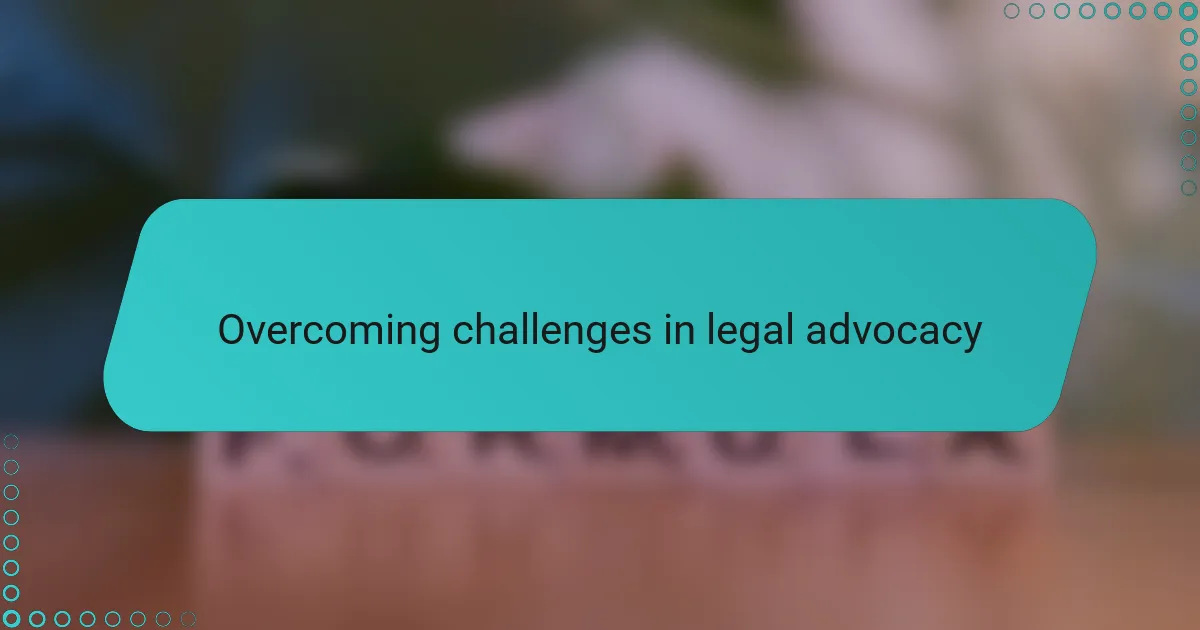
Overcoming challenges in legal advocacy
Challenges in legal advocacy often feel like walls too high to climb, but I’ve learned that persistence can chip away at even the toughest barriers. I recall a case where initial rejection left me disheartened, yet staying committed opened doors I never imagined. Have you ever faced a setback that made you question your path, only to find strength by pushing through?
Navigating bureaucracy and complex legal systems can sometimes seem overwhelming. At times, I felt lost in endless paperwork or unclear procedures, but breaking tasks into small, manageable steps made the process less daunting. When you take it one step at a time, what seemed impossible suddenly becomes achievable.
Sometimes, the hardest part is overcoming skepticism—both from those you seek to help and from colleagues. I found that building trust through genuine conversations, even when progress was slow, created a foundation for lasting change. Isn’t it fascinating how patience and empathy often win battles that legal arguments alone cannot?
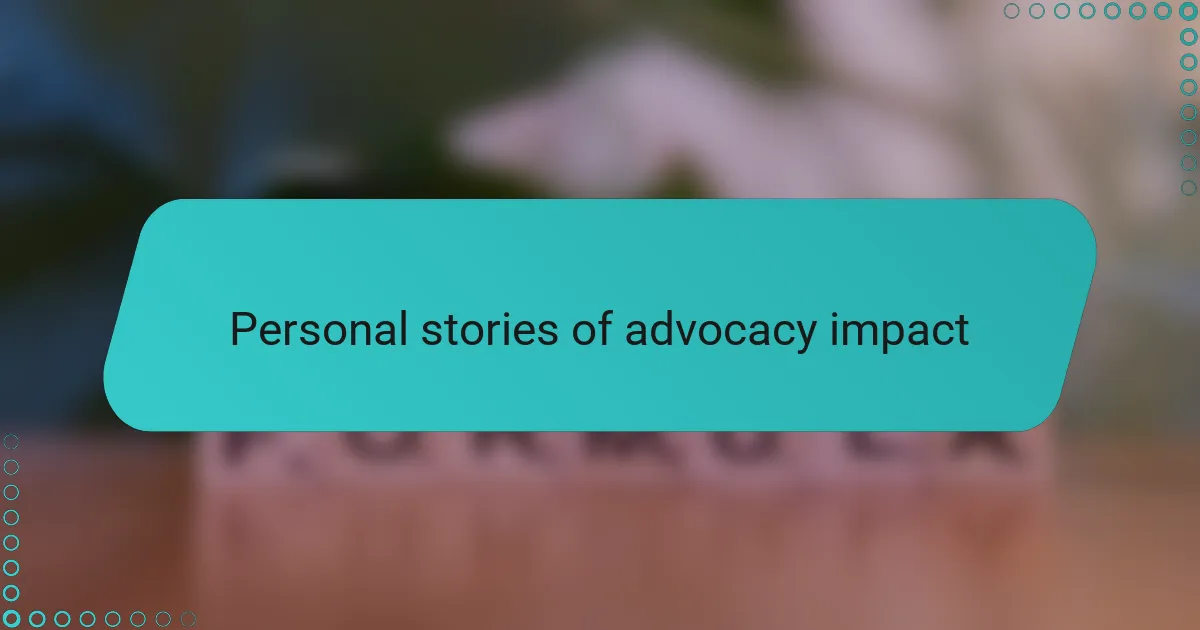
Personal stories of advocacy impact
I still remember the day a single letter I helped draft sparked a community-wide discussion about tenant rights. It was a reminder that even small acts of legal advocacy can ripple outward and inspire others to take a stand. Have you ever experienced that moment when your voice unexpectedly empowers someone else?
There was a time when I shared my story of overcoming eviction through advocacy at a local meeting. The expressions on people’s faces—hope, relief, determination—showed me firsthand how personal stories create powerful connections. It made me realize how vulnerable storytelling can break down barriers and motivate collective action.
Sometimes, witnessing someone else’s journey to justice because of your efforts feels surreal. I recall an advocate reaching out months later to say my guidance gave them the courage to fight their case. Moments like that affirm why I continue this path, despite its hardships. Don’t you find those quiet victories the most rewarding?
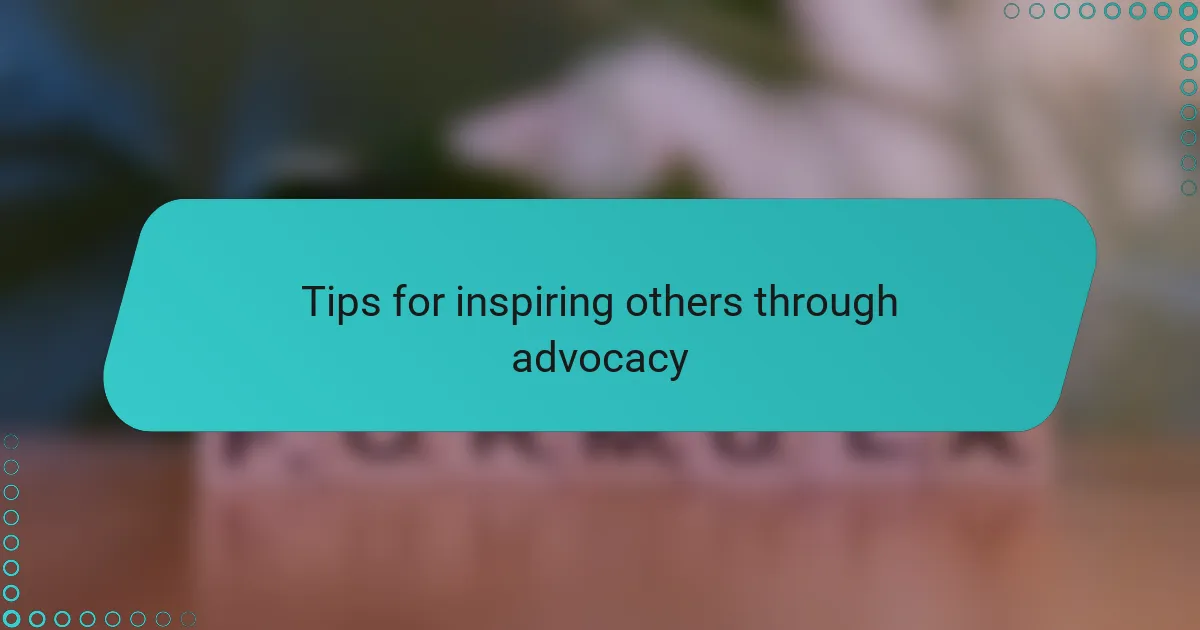
Tips for inspiring others through advocacy
One tip I’ve found essential is leading by example. When others see your genuine commitment and the sacrifices you make, it often sparks a desire to join your cause. Have you ever noticed how a passionate advocate can light a fire in even the most hesitant supporters?
Another piece of advice is to celebrate small wins openly. Sharing those moments of progress, no matter how minor, builds momentum and reminds everyone why their efforts matter. I remember a time when acknowledging a tiny policy tweak energized our whole group, making us feel that change was genuinely possible.
Finally, don’t underestimate the power of empathy. Connecting with people’s personal experiences makes your advocacy relatable and heartfelt. When I took time to understand individual stories, I noticed how quickly skepticism turned into solidarity—a reminder that at its core, advocacy is about people, not just laws.
